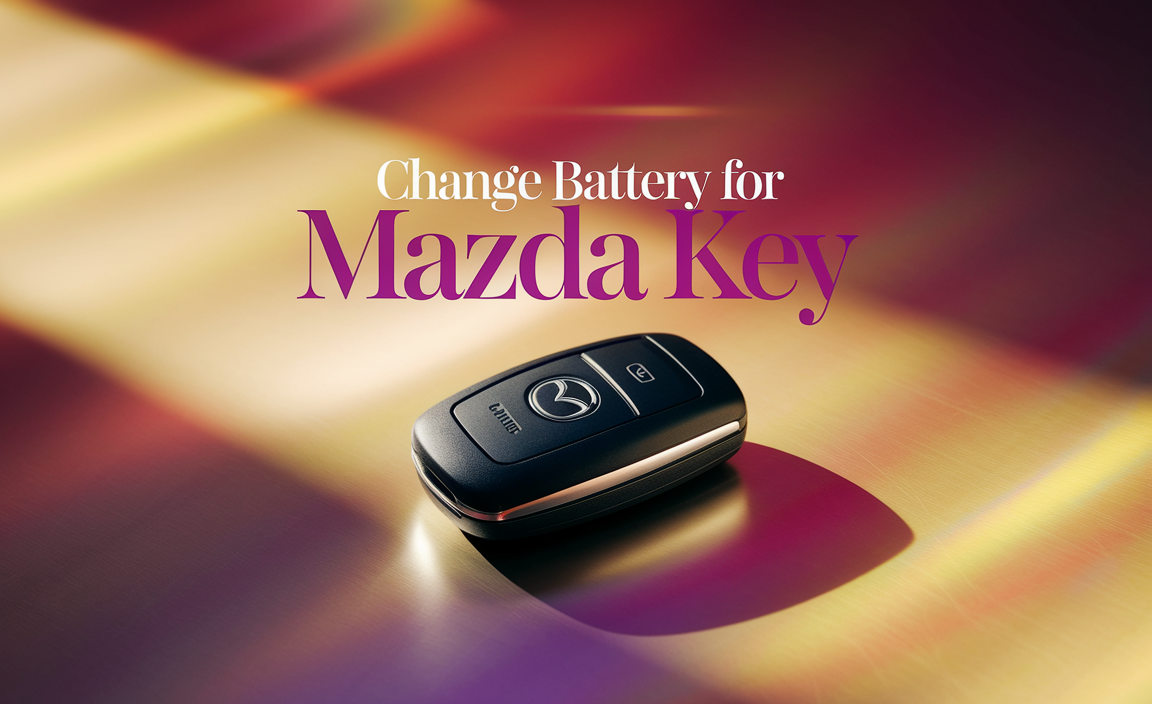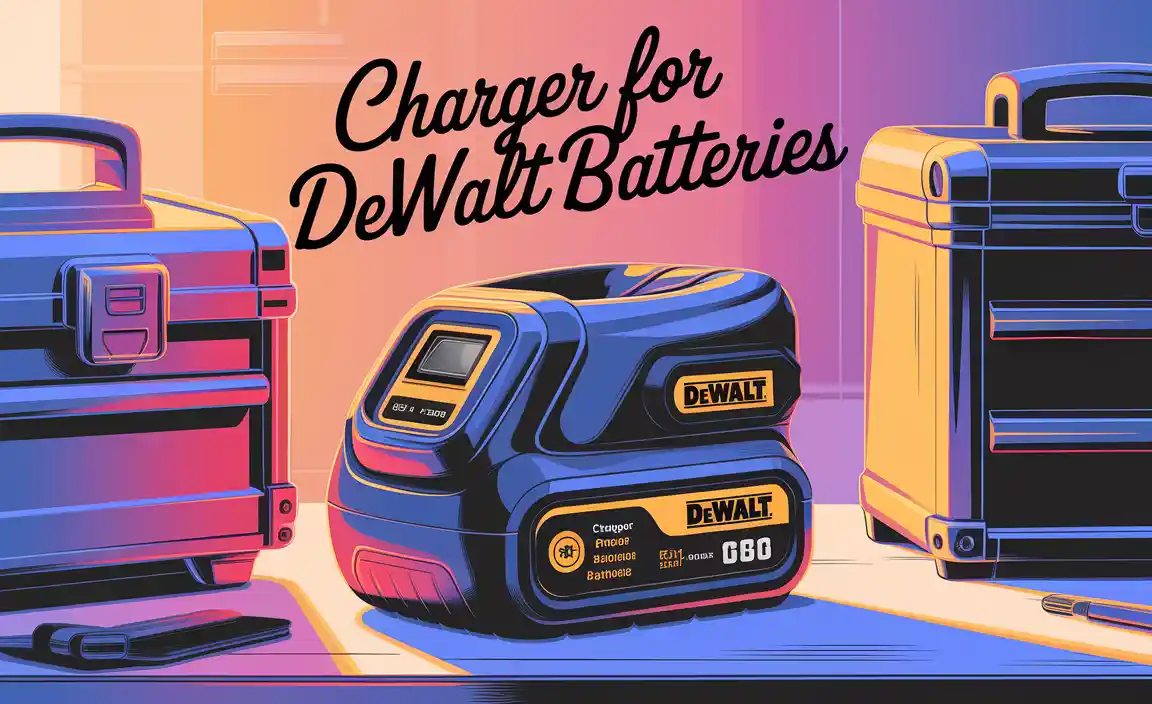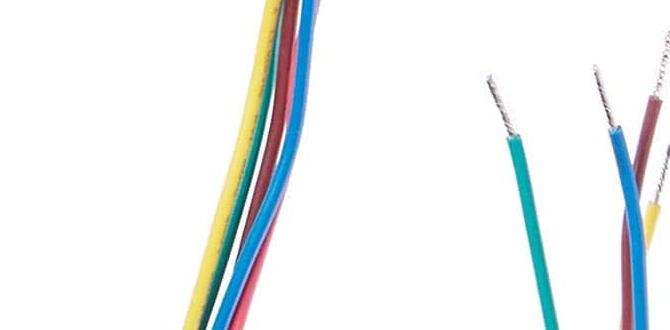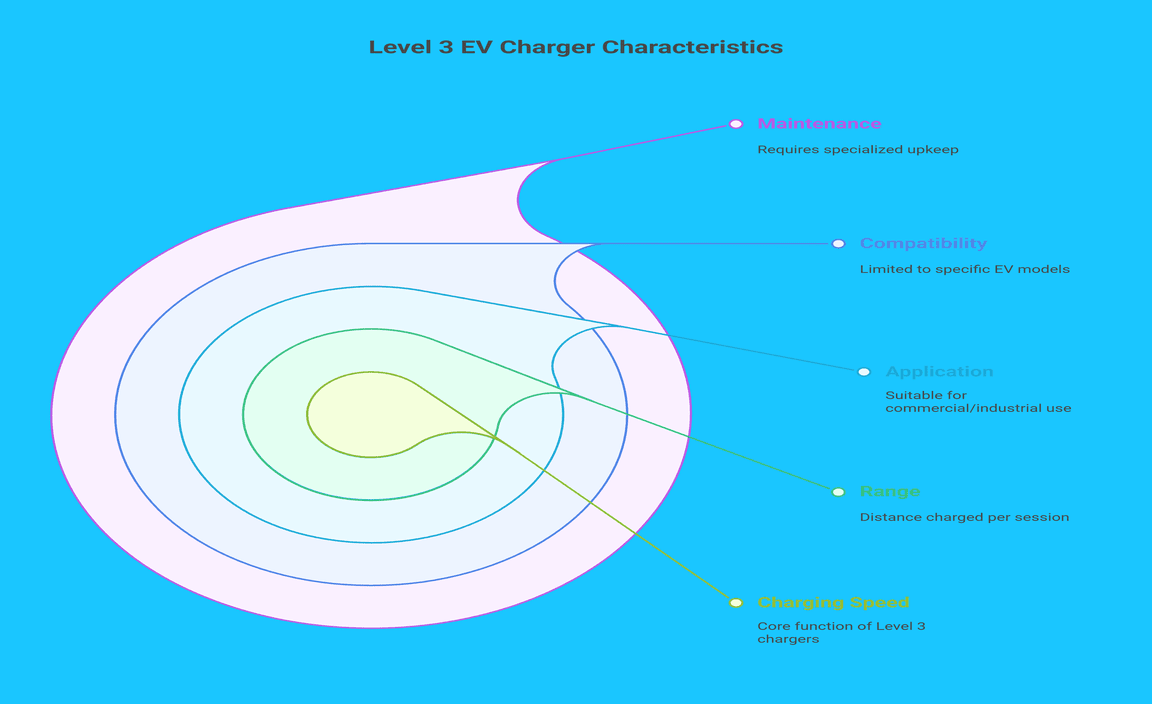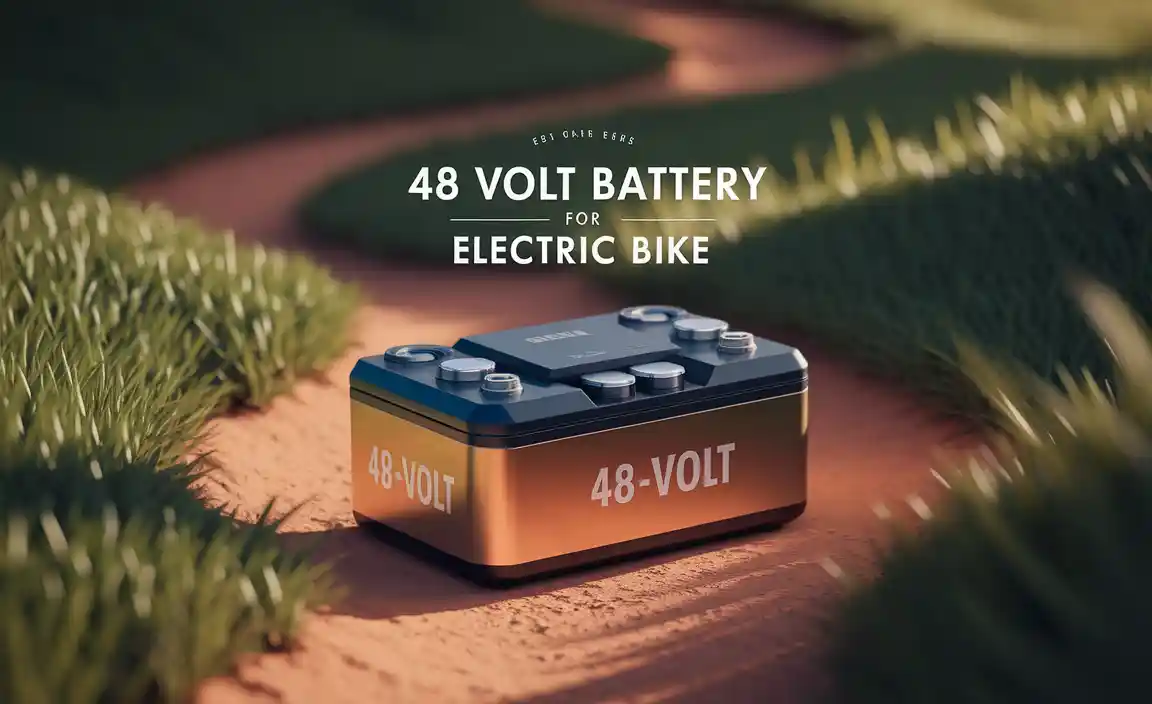Imagine you are working on a big project around the house. You grab your trusty drill, but it won’t turn on. The problem? A dead battery! Have you ever been in a situation like that?
Batteries for drills are more important than you might think. They power the tools that help us build, fix, and create. Choosing the right battery can make a huge difference. A good battery gives you longer run time and more efficiency.
Did you know that battery technology is always changing? Some batteries last longer and charge faster than ever before. It can be hard to keep up with all the options. But understanding batteries for drills can make your work easier and more fun.
This article will explore everything you need to know about batteries for drills. You’ll learn how to choose the right one and what to look for. So, let’s dive in and make sure your drill never runs out of power again!

Essential Guide To Choosing The Right Battery For Drills
Finding the right battery for drills can make your DIY projects easier and more fun. Did you know that a powerful battery can boost your drill’s performance? The right battery type depends on your drill model and how much work you do. Lithium-ion batteries are popular because they last longer and charge quickly. Plus, a good battery can help you finish tasks without interruptions. Choosing wisely will keep your projects running smoothly. Ready to rev up your drilling power?
Understanding Drill Battery Types
Differences between NiCd, NiMH, and Liion batteries. Pros and cons of each battery type.
Drills use different types of batteries. Let’s look at their main types: NiCd, NiMH, and Li-ion. Each has its own good and bad points.
- NiCd (Nickel-Cadmium)
- Deep discharge without damage.
- Long life cycle.
- Can fade in power over time.
- NiMH (Nickel-Metal Hydride)
- Better energy capacity than NiCd.
- Less harmful for the environment.
- May need special care for longer life.
- Li-ion (Lithium-ion)
- Lightweight and compact.
- High energy output and fast charging.
- Can be expensive compared to others.
Choosing the right battery depends on what you need. Think about how long you want to work and how often you charge. Now, let’s answer some common questions.
What is the best battery type for drills?
Many prefer Li-ion for its power and quick charge time.
Do NiMH batteries last longer than NiCd?
Yes, NiMH batteries generally have a longer lifespan.
Factors to Consider When Buying a Drill Battery
Voltage and capacity specifications. Compatibility with different drill brands and models.
Buying a battery for your drill is easy if you know what to look for. First, check the voltage and capacity. Higher voltage gives more power, while capacity means it lasts longer. Next, make sure the battery is compatible with your drill brand and model. Not all batteries fit all drills. Here are some tips:
- Choose the right voltage for your drill.
- Check the battery’s amp hour (Ah) for capacity.
- Match the battery brand with your drill.
With these tips, you can find the best battery for your drill!
How do I know if a drill battery is compatible?
To check compatibility, look for the brand and model number on the battery and drill. You can also visit the brand’s website for details.
How to Properly Maintain Your Drill Battery
Best practices for charging and storage. Signs of wear and when to replace the battery.
To keep your drill battery working well, it’s important to follow some simple tips. Charge your battery fully, but avoid keeping it plugged in all the time. Store it in a cool, dry place. Look out for signs like poor performance, swelling, or leaking. These mean it is time to replace your battery. A well-cared-for battery can last for years!
What are the best practices for charging and storing drill batteries?
Charge your battery fully and store it in a cool, dry place. This will help your battery last longer and work better.
Signs of wear and when to replace the battery:
- Poor performance while drilling.
- Swelling or unusual shapes.
- Weak or no power after charging.
Benefits of Upgrading Your Drill Battery
Improved performance and efficiency. Increased longevity and cost savings over time.
Upgrading to a new drill battery can really kick your projects into high gear! With a better battery, your drill will run longer and work harder, getting more done in less time. That means improved performance and efficiency for you! Plus, a quality battery lasts longer, saving you cash on replacements. Think of it as an investment; with a wise choice, you’ll spend less over time. Who doesn’t want a drill that’s as excited to work as you are?
| Benefit | Details |
|---|---|
| Performance | Lasts longer and works harder. |
| Cost Savings | Fewer replacements mean more money in your pocket! |
Environmental Impact of Drill Batteries
Recycling options for used batteries. Comparison of ecofriendly battery alternatives.
When you’ve used up your drill’s battery, don’t toss it in the trash like an old sandwich! Recycling is a better choice. Many places accept used batteries and make sure they don’t harm the earth. Plus, there are eco-friendly battery options available. These can make a big difference in keeping our planet happy and healthy.
| Type | Recycling Option | Eco-Friendly Alternative |
|---|---|---|
| Lead-Acid | Local Recycler | Li-ion Batteries |
| Nikola | Collection Events | Nickel-Metal Hydride |
Switching to these can be like upgrading from a flip phone to a smartphone. Your tools will smile, and the Earth will thank you!
Frequently Asked Questions About Drill Batteries
Common misconceptions and facts. Troubleshooting tips for batteryrelated issues.
Many people have questions about batteries for drills. Common myths say all batteries are the same. In reality, different drills need specific battery types. Some think more power means better performance, but that’s not always true. If you’re having issues, here are some tips:
- Check the connections. Make sure the battery is secure in the drill.
- Charge fully. Always charge the battery before using it to avoid surprises.
- Temperature matters. Keep batteries cool and dry for best results.
Understanding these facts can help your drill perform better!
Conclusion
In summary, choosing the right battery for drills is essential for good performance. Look for batteries that offer long life and quick charging. Lithium-ion batteries are often the best choice. Remember to check compatibility with your drill. For more tips, keep exploring and learning about batteries. With the right battery, you can work more effectively!
FAQs
What Are The Different Types Of Batteries Commonly Used In Cordless Drills, And How Do They Compare In Terms Of Performance And Longevity?
Cordless drills often use two types of batteries: nickel-cadmium (NiCd) and lithium-ion (Li-ion). NiCd batteries are usually cheaper but don’t last as long and can lose power quickly. Li-ion batteries are lighter and last longer, making them better for longer jobs. So, for performance, Li-ion is the winner. They also take less time to charge, which is really helpful!
How Can The Lifespan Of A Drill Battery Be Extended Through Proper Care And Maintenance?
To extend your drill battery’s life, you should store it in a cool, dry place. Avoid letting it fully drain before charging it again. Use the battery regularly but don’t overcharge it. Cleaning the battery contacts can also help it work better. Taking these simple steps will help your battery last longer!
What Factors Should Be Considered When Selecting A Replacement Battery For A Cordless Drill?
When picking a new battery for your cordless drill, you should check a few things. First, look at the battery’s voltage. Higher voltage usually means more power. Next, think about the battery’s type. Lithium-ion batteries are popular because they last longer. Finally, make sure it fits your drill model. Different drills need different batteries, so double-check the size!
How Do Battery Voltage And Amp-Hour Ratings Impact The Power And Runtime Of A Drill?
Battery voltage tells us how strong the battery is. A higher voltage means the drill works better and faster. Amp-hour (Ah) ratings show how long the battery can run. If you have a battery with more amp-hours, your drill can work longer before it needs a recharge. So, a strong battery with lots of amp-hours helps you drill more effectively and for a longer time.
Are There Any Benefits To Using Newer Battery Technologies, Such As Lithium-Ion Or Lithium-Polymer, Over Traditional Nickel-Cadmium Batteries In Drills?
Yes, using newer batteries like lithium-ion and lithium-polymer has many benefits. They are lighter and smaller, so they make drills easier to handle. These batteries last longer and charge faster, so you can work more without waiting. Plus, they don’t have memory issues, meaning they can be used without losing power over time. Overall, they help you get the job done quicker and better!

